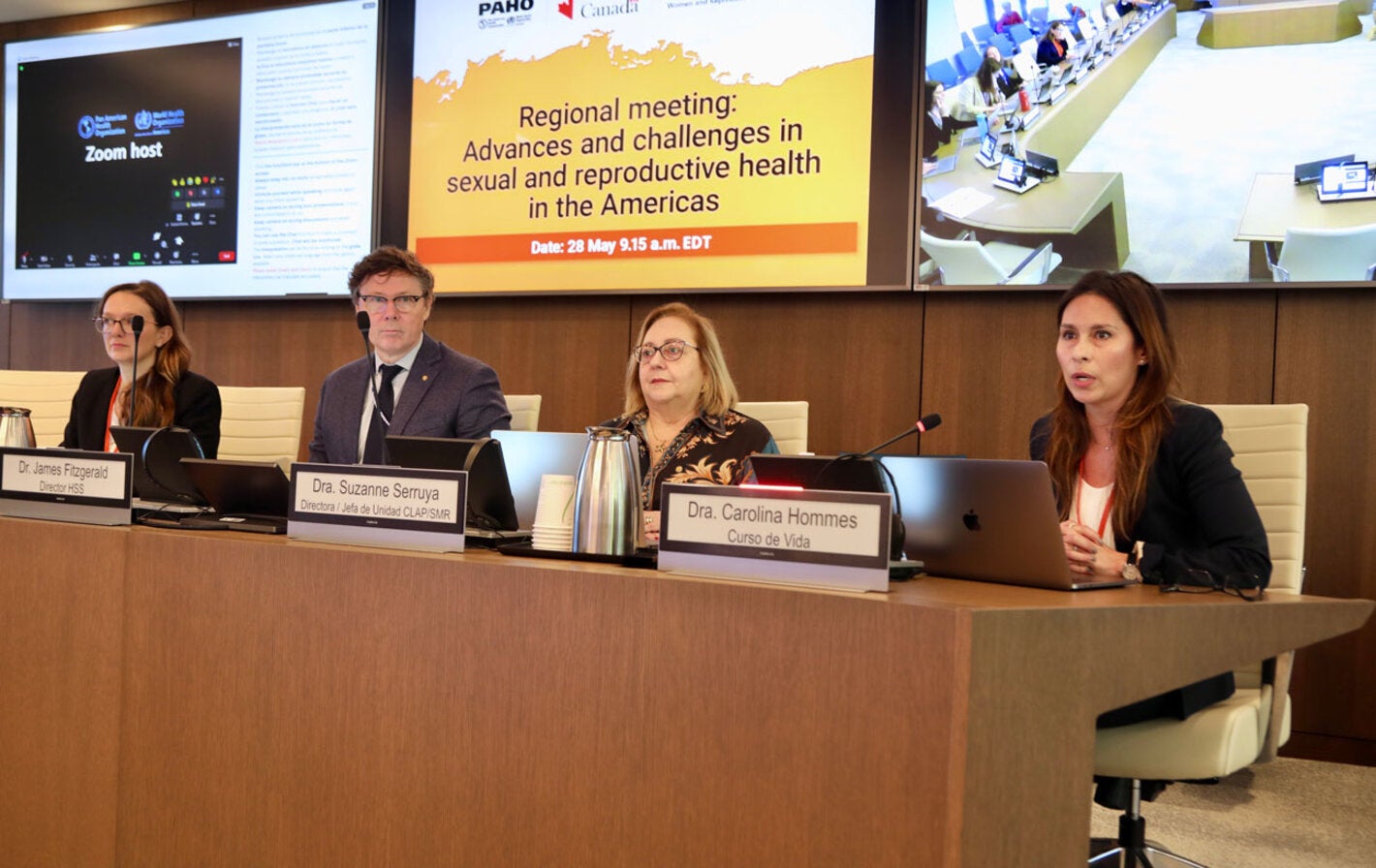
Washington, DC, 28 May 2024 (PAHO)- While most countries in the region of the Americas have improved coverage of reproductive health services, reaching just over 81% of the population, inequalities persist both between and within them, Pan American Health Organization (PAHO) Director, Dr. Jarbas Barbosa, said during a regional meeting on the Day of Action for Women's Health.
Barriers to access to sexual and reproductive health services are greater in populations in situations of vulnerability, which leads to certain groups having systematically worse reproductive health outcomes. “Addressing these inequities is fundamental to achieving universal health, protecting human rights, promoting gender equality, combating discrimination, and improving the social determinants of health,” the PAHO Director stressed in a video message.
PAHO presented the main findings and conclusions of the document, State of access to sexual and reproductive health services, presented to the Directing Council of the Organization in September 2023. The document reports on the state of sexual and reproductive health in the region, health policy responses, and barriers to access. It also suggests measures to improve the situation based on scientific evidence and successful experiences.
The report indicates significant disparities in access to long-acting contraceptive methods among countries in Latin America and the Caribbean. The COVID-19 pandemic has had a significant impact on this access, forcing millions of women to discontinue use due to disruptions in public provision and economic hardship.
Although the adolescent fertility rate has declined slightly in the last decade, significant variations persist among subregions and countries. However, it is estimated that millions of pregnancies in this age group are unplanned each year.
Dr. Barbosa referred to maternal mortality and said that “it continues to be unacceptably high in the Americas and does not correspond to the level of development of the region, nor to the resources that have been invested to address this problem”. He lighted that one of the main difficulties is the existence of inequities in access to quality care.
The Director of PAHO stated that regulatory frameworks, policies and regulations aimed at primary health care, with a comprehensive vision of health, sexuality and reproduction are essential. He stressed the need for intersectoral work that encompasses not only health, but also education and social protection. He also called for a stronger political commitment to ensure adequate and sustainable financing for the implementation of cost-effective interventions within health systems.
“With sustained and collaborative efforts, we can foster societies in which women can experience motherhood in a safe, positive and dignified way. The imperatives of health and human rights are clear: it is time for the global health community to unite around the agenda to ensure sexual and reproductive health and rights,” he said.
The Director of PAHO's Latin American Center for Perinatology, Women and Reproductive Health (CLAP/SMR), Dr. Suzanne Serruya, presented the main conclusions of the document and pointed out that it has been proven that investment in sexual and reproductive health has important benefits for States, societies and individuals. “Ensuring access to sexual and reproductive health services is a matter of human rights and a strategy for the development of countries,” she stressed.
The Director of PAHO's Department of Health Systems and Services, Dr. James Fitzgerald, also remarked that there are agreements and commitments assumed by the region that are unavoidable and require action by the countries in order to make definitive progress on the sexual and reproductive rights agenda. “It is an issue of social justice that has an enormous impact on the lives of people, particularly women, and it is imperative to act accordingly,” he said. “This document is a valuable tool as it provides evidence-based information and sets out steps to take to move towards a more just society in terms of sexual and reproductive rights,” added Dr. Fitzgerald.
Other PAHO authorities, representatives of the missions of the Organization of American States (OAS), the Ministries of Health of PAHO Member States and civil society organizations participated in the meeting. It was supported by Global Affairs Canada, through the project Improving the health of women and adolescents in vulnerable situations.



